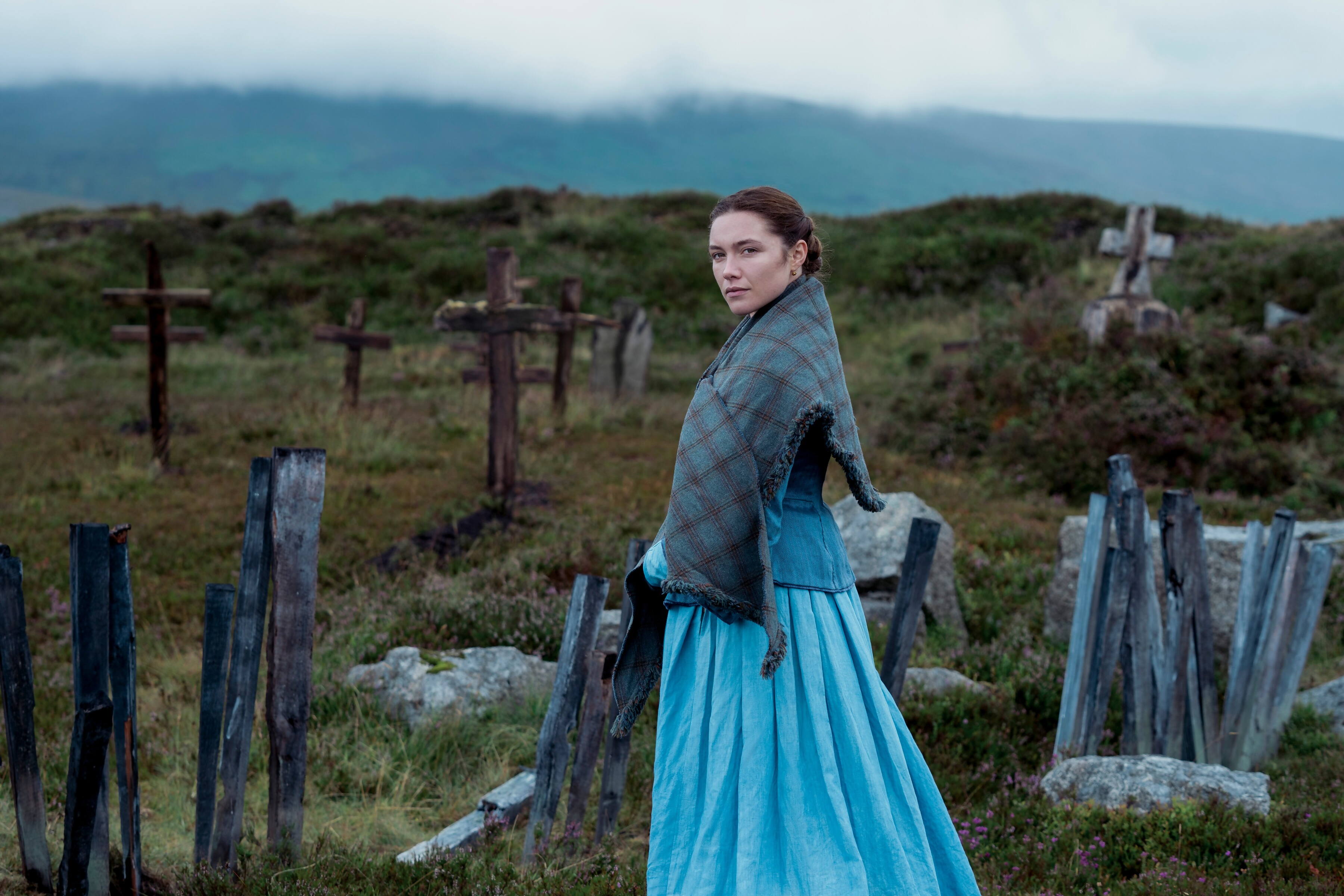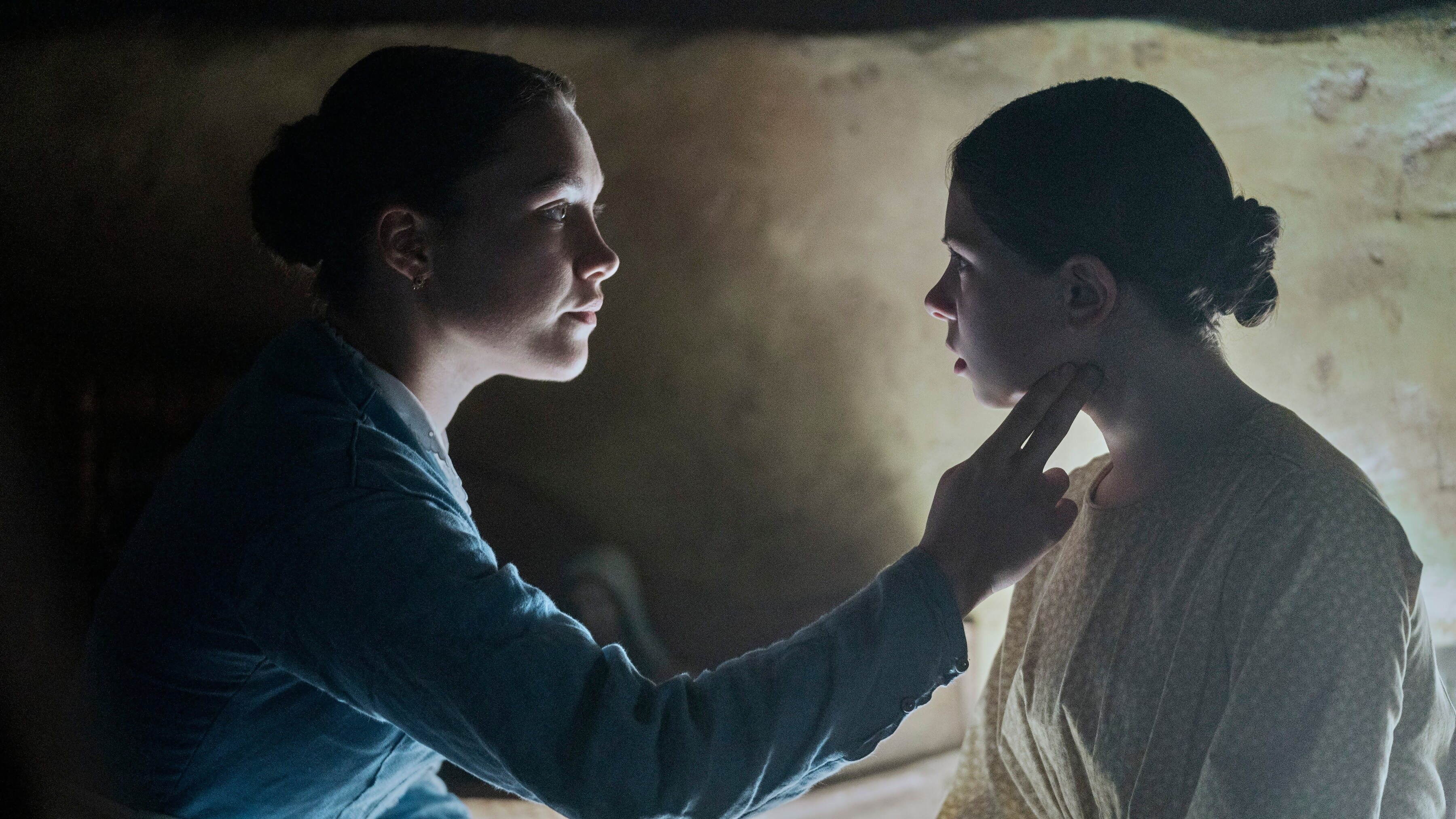
★★★★☆
The Wonder follows Florence’s Pugh English nurse, who is summoned to a remote Irish village to observe a girl who is miraculously alive despite not having eaten for four months.
Is there anything Florence Pugh can’t do? She was by far the best element in Don’t Worry Darling, earned an Oscar nomination for her turn in Little Women and is also a budding action star in the MCU. There’s a nagging sense that Sebastián Lelio’s The Wonder wouldn’t work nearly as well as it does without the mammoth effort on Pugh’s part.
Pugh plays nurse Elizabeth Wright, who travels from England to Ireland. A local, self-appointed council has summoned her to perform a watch over Anna, a young girl who hasn’t reportedly eaten a single bite of food for four months. Yet, she is alive and well, and Nurse Wright must find out why.
There is a major clash of religion and science, bubbling just under the surface of The Wonder. While it forms the central conflict, it’s rarely spelt out. It simply gives us an idea of the forces battling here. Wright is a woman of science who believes things can be explained with reason and common sense.

Credit: Netflix
For most of its runtime, The Wonder focuses on the central mystery of how Anna is alive when she refuses to eat and claims she can’t feel hunger. The film is admittedly better before the big reveal, which comes a little too early; the sense of intrigue disappears once you’re let in on the secret, but thanks to Pugh, you’ll gladly keep watching anyway.
Pugh is simply magnetic on screen. She is commanding and effortlessly communicates the biggest ideas with the smallest gestures. She effectively shows Wright’s vulnerabilities that she tries to mask with a thin veil of professionalism. As a character, Wright is compelling and gripping.
Lelio and Alice Birch’s script (based on Emma Donoghue’s novel) drip-feeds us information about her past until doing a huge exposition dump on the audience. The script is often a little heavy-handed, and the sight of baby bums is enough. We don’t need to know what happened to her to understand who she is now or how some past events have shaped her.
Tom Burke, again, appears as an enigmatic stranger, a journalist covering the story for a London newspaper. The Wonder is yet another film that typecasts him, leaving him to sulk and have other people’s feelings projected onto him. It’s effective; Burke has an appropriate mystery quality but is also lazy.

Credit: Netflix
Lelio directs the film with a steady hand; the cinematography is grand, and there’s a fascinating meta element, a framing story of sorts that feels a little like an afterthought. The score is phenomenal, creating harmony between the image and the soundscape of The Wonder.
The film probably should have wrapped up a little earlier; the final 15 minutes are unnecessarily sentimental and aren’t needed at all, but this is a very handsome effort from everyone involved. Even if The Wonder doesn’t quite burrow itself under your skin, it certainly lingers with you for a long time.
The Wonder screened at BFI London Film Festival on October 7 and is be released in UK cinemas November 4 before streaming on Netflix November 16.


